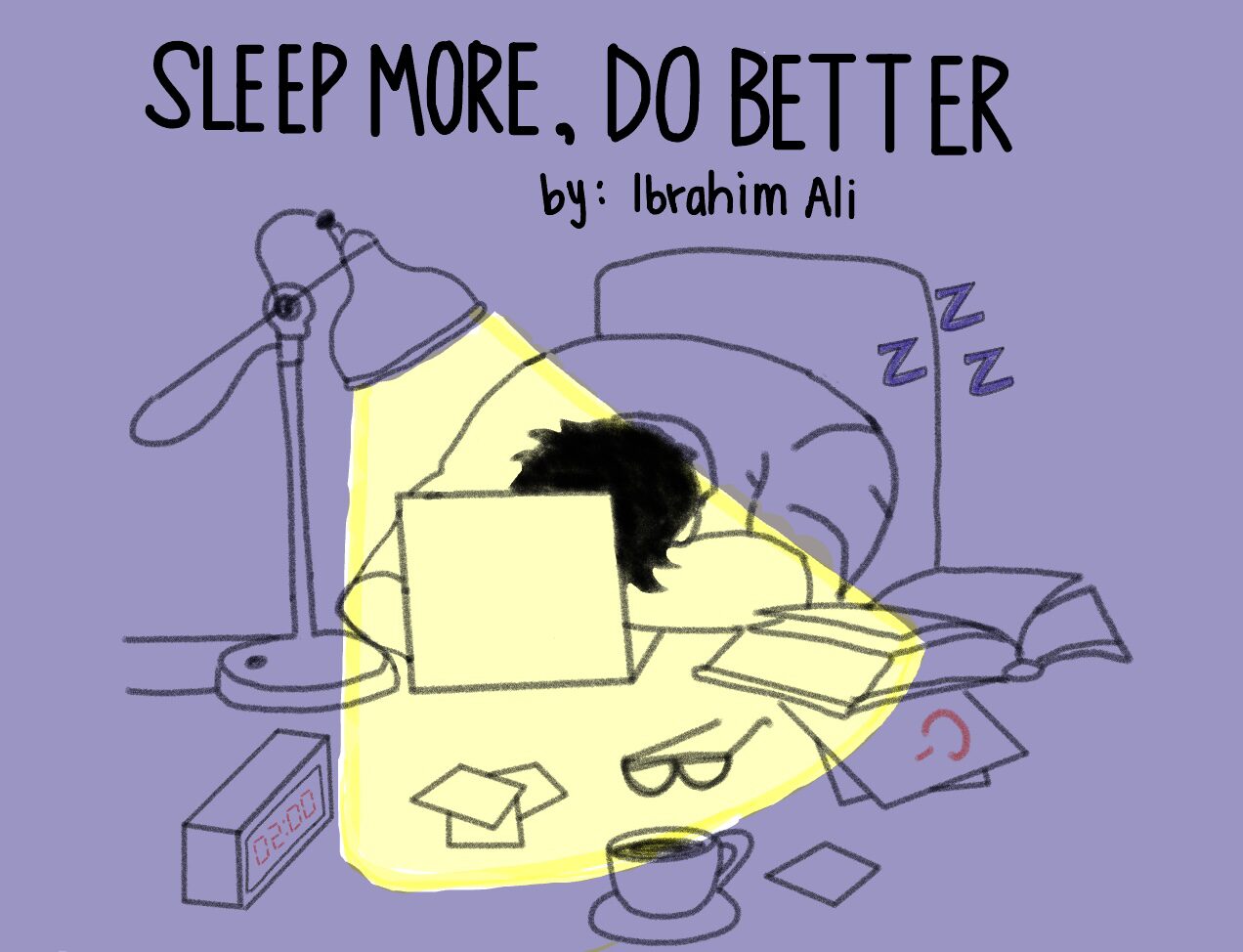
Writer: Ibrahim Ali
Editor: Sowmya Kolluru
Graphic Editor: Elise Tinh
Sleep is important. We all know that. But just how important is getting enough sleep? It turns out that not getting enough sleep is detrimental to your grades. Bad grades? Now I have your attention, don’t I?
Growing up, your parents prescribe you a bedtime that becomes part of your routine, and your body gets used to sticking to this predetermined schedule on a daily basis. According to Professor Michael Gorman of UC San Diego’s Psychiatry Department, your body teaches itself to fall asleep and wake up at a certain time based on environmental cues and your circadian clock, also known as your innate, biological timer. However, college life is notorious for being spontaneous. Whether it be a surprise birthday party or a late night study session, the first thing you sacrifice as a busy university student is some well-deserved sleep.
It seems almost every college student sacrifices sleep and keeps themself hooked on coffee, so why is the lack of sleep a big deal? To best understand the problems with depriving yourself of quality sleep, it is important to first understand one of the biggest causes of the issue: social jetlag. Social Jetlag is the loss of sleep that is influenced by your desire to socialize throughout the week. During the week, students say that they will catch up on sleep during the weekend, but then, the weekend arrives. A hard, studious week calls for fun on the weekends, taking away from the extra time you owe your sleep timer.
That’s right! You can physically “owe” your body sleep. Your body has a timer that builds up from the minute you wake up; it measures how sleepy you are. The more you cheat yourself out of sleep, the faster your timer will run out. Have you ever noticed that even if you sleep for a solid 12 hours, you still wake up sleepy? That is the sleep debt you have with your body that you have incurred after all the times you deprived your body of the sleep it deserves.
The reality is that the solution to sleep deprivation also involves some sacrifice for a university student. You have to wake up early. If you wake up early, you will get tired earlier, as well. For example, if you wake up at 7 AM, you will have been awake for 14 hours by the time it gets to 9 PM. It is highly likely that you will be sleepy by that time, and so a more fitting sleep schedule will ensue.
Sleeping 6-8 hours is important, but just as important is the time at which you sleep. The perfect timing to sleep is from just after sundown to sun-up, since this follows the melatonin cycle that can aid your sleep quality.
So sleep amount and sleep timing can both raise your grades. Cheating yourself out of sleep is cheating yourself out of a successful academic future. There is an undeniable relationship between sleep cycle and grades. If you do not believe so, it is only a matter of time before it catches up to you. Finding the perfect balance between sleep, schoolwork, and a social life will always be a challenge, but with slight modifications in lifestyle, it is attainable.









